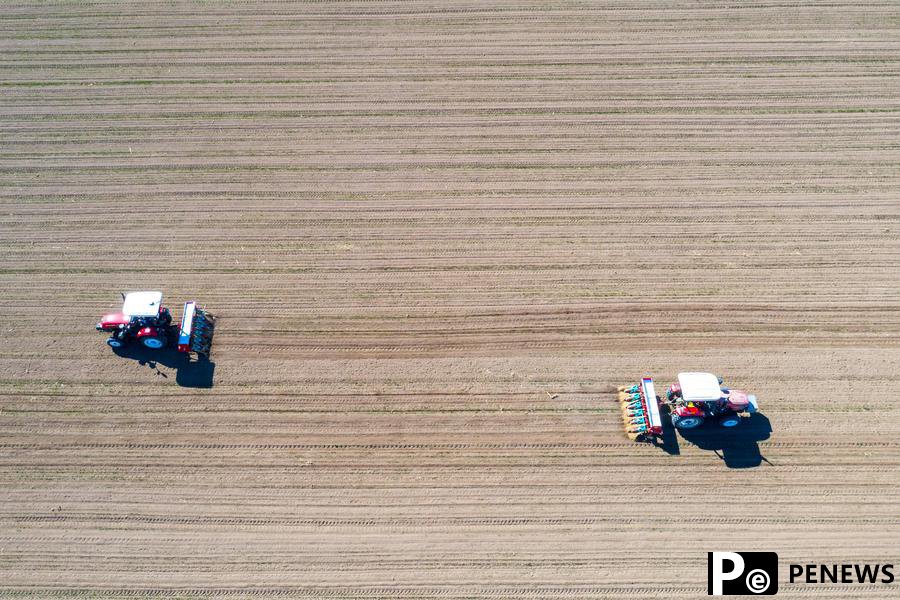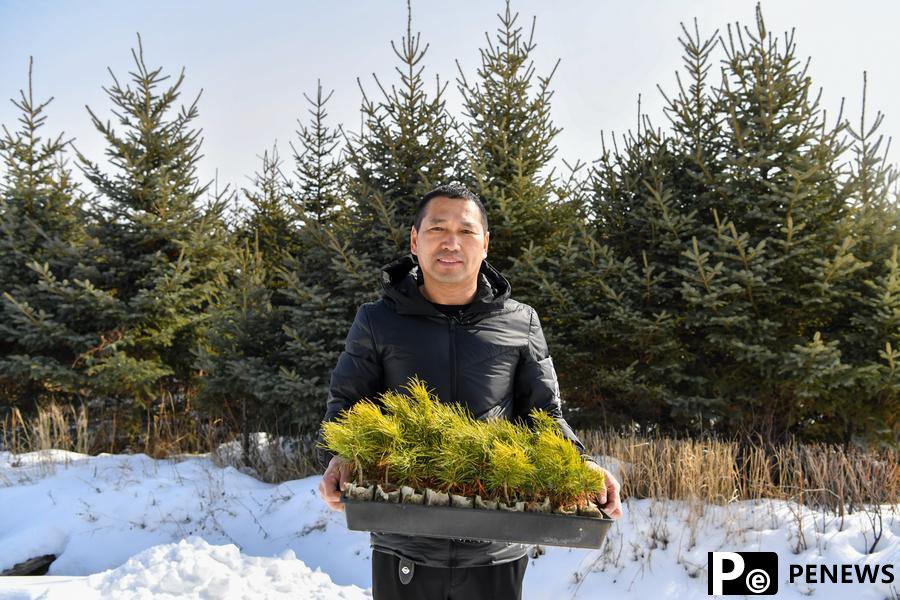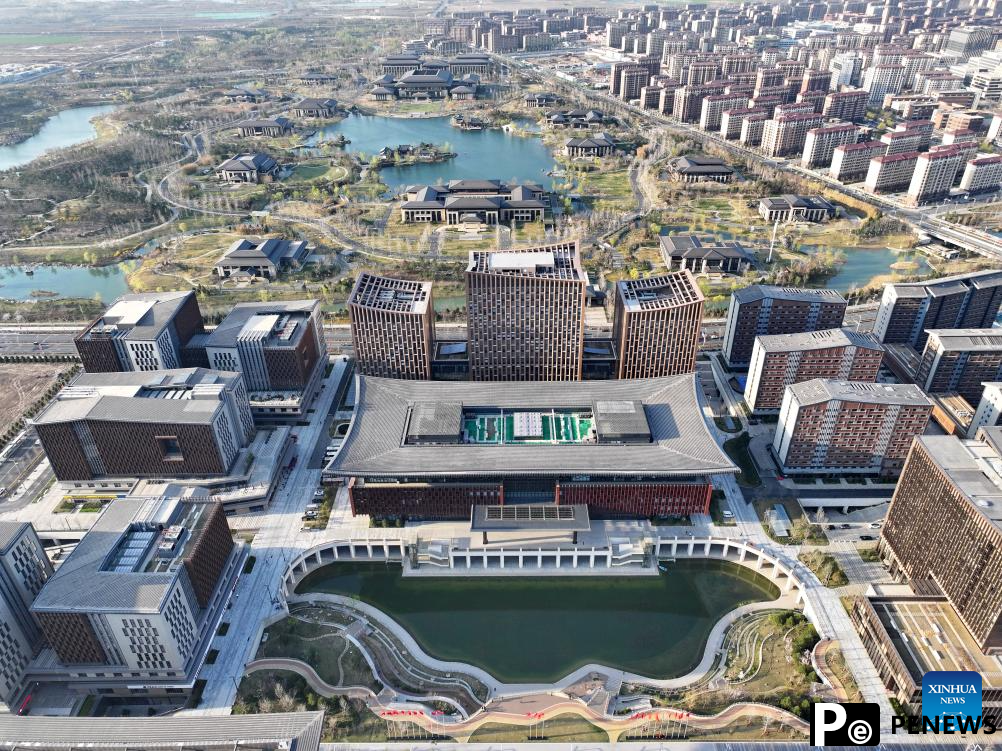Home>>
Spring farming in saline-alkali land boosts China's food security(Xinhua) 08:06, April 02, 2024
BEIJING, April 1 (Xinhua) -- As temperatures warm up across China, spring farming is in full swing in the country's major grain-producing regions, following the age-old rhythms of nature. Unlike in the past, however, Chinese farmers are now farming not only on fertile land, but also on the once-barren saline-alkali soil.
Such soil is notoriously difficult to farm, typically producing low crop yields, but technological advances in agriculture mean that Chinese farmers are increasingly able to put it to good use.
Saline and alkaline soil covers more than 30 countries in the world, with a total area of over 900 million hectares. China has about 100 million hectares of such land, of which around one-third is available for utilization.
According to Ai Zhiyong, deputy director of the National Center of Technology Innovation for Saline-alkali Tolerant Rice, this land is a potential resource for safeguarding the country's food security.
Over the years, China has persistently promoted the comprehensive treatment and utilization of saline-alkali land. With the application of science and technology to treating the soil and developing new crop varieties, this land is being transformed into a "new granary" for the nation.
China's grain output hit a record high of 695.4 million tonnes last year, with the per capita grain possession standing at 493 kg. This is the ninth consecutive year in which China has registered a grain harvest of over 650 million tonnes.
PRODUCTIVITY IMPROVEMENT
In late March, dozens of automated fertilizer spreaders were being operated at the same time in Liutuan Town, in the city of Changyi, east China's Shandong Province, shuttling back and forth on more than 100,000 mu (6,666 hectares) of farmland. Such a vivid scene would have been hard to imagine just a few years ago, when the villagers here were still worrying about the overgrown saline-alkali land on which they live.
"Previously, the salinity in the ground was high, and there were no available fresh water resources around. After sowing seeds, we could only hope for the rain," said a villager in Liutuan Town. "Some years, we might see no yield at all due to a lack of rain."

An aerial drone photo taken on March 19, 2024 shows staff members operating agricultural machinery to fertilize saline-alkali tolerance wheat in the Agricultural High-tech Industrial Demonstration Area of the Yellow River Delta in Dongying, east China's Shandong Province. (Xinhua/Zhu Zheng)
Cultivating quality arable varieties is of key importance to increasing the grain output of saline-alkali land. Many grain and oil crops gradually adapt to saline-alkali soil thanks to germplasm innovation and new varieties. Crops resist diseases and tolerate salt better on account of breeding techniques like hybridization, cell and chromosome engineering, gene editing, etc.
"We cooperated with universities and research institutes, conducting over 2,000 screening experiments for germplasm resources every year to seek varieties with excellent characteristics, such as high yield, salt-alkali resistance and drought tolerance," said Sun Dedong, head of a local agricultural complex named "Qingfu."
"We experimented with sowing these varieties in the fields, hoping to adapt the seeds to saline-alkali land," said Sun.
So far, more than 1,600 varieties of wheat have been sown in trials, while over 20 high-quality crop varieties have been selected and bred. As a result, the yield of wheat per mu has increased from less than 250 kg to more than 500 kg.
Local agricultural departments and seed companies across China also actively send high-quality saline-resistant seeds to farmers' doorsteps to increase the land yield and their incomes.
"This year, the government has recommended potato varieties to us, and professional technicians have been sent to teach us planting techniques. We are expected to achieve the goal of increasing production and income," said a local farmer in Zhaoma Village, located in Shandong's city of Dongying.
Also in Dongying, a breeding platform for saline-alkali tolerant plants has been set up in the Agricultural High-tech Industrial Demonstration Area of the Yellow River Delta. Crops such as sweet sorghum, ryegrass and soybeans grow well in an artificially simulated environment, enclosed behind glass.
"This is the first digital breeding accelerator for saline-alkali tolerant plants in China," said Lin Shuang, an engineer at the Institute of Botany under the Chinese Academy of Sciences. "It can simulate different growing environments for plants. Saline-alkali tolerant plants are selected to accelerate breeding iterations in different light rays, temperatures and humidity."
The growth cycle of plants can be shortened from 110 to 120 days outdoors to less than 90 days with the indoor vitrine-like platform, which speeds up the search for the best growing environment, Lin added.










